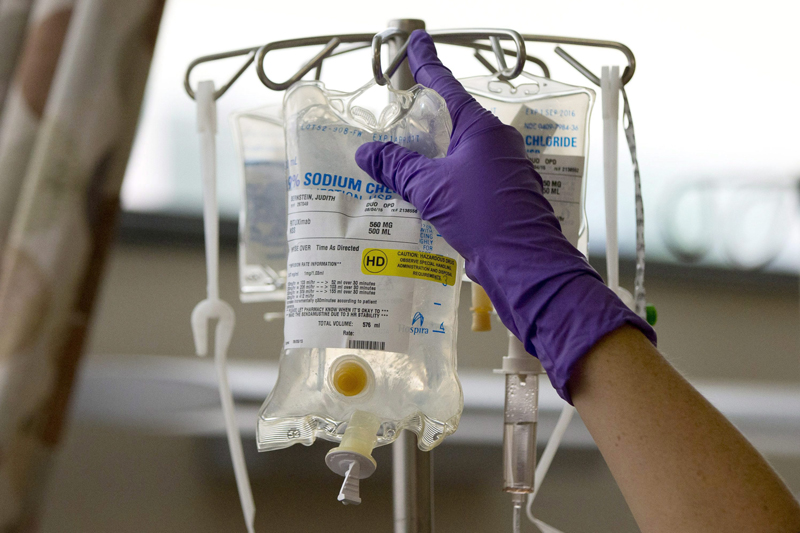If you’re grappling with depression while battling a cancer diagnosis, new research suggests you may be less receptive to chemotherapy treatments.

Chinese researchers out of Zhengzhou University say cancer patients suffering from depression are less responsive to cancer drugs. They also struggle more with the side effects of treatment, too.
The scientists say their findings shed light on addressing mental health woes cancer patients face to make their drug therapy more potent. Keep in mind, low mood is pretty common among cancer patients.
READ MORE: What one non-smoking young mom diagnosed wants Canadians to know about lung cancer
“The link between depression and poor outcomes among these patients is significant. This finding can perhaps lead to new ways to treat depression in these patients which in turn may prolong their lives,” said Dr. Ravindran Kanesvaran, a medical oncologist and assistant professor at the university.
“It’s crucial doctors pay more attention to the mood and emotional state of patients. Depression can reduce the effects of chemotherapy,” the study’s lead author, Dr. Yufeng Wu, said.
Wu’s team zeroed in on BDNF — or brain-derived neurotropic factor — which is a brain-boosting protein in the blood. BDNF plays a role in healthy brain function and in previous work, scientists already learned that low levels have been tied to mental health concerns.
READ MORE: How much do cancer drugs cost Canadians?
This time around, the researchers wanted to know how low levels of BDNF tampered with chemotherapy for people with advanced lung cancer.
The researchers recruited 186 people going through chemotherapy for the study. They rated their depression levels the day before treatment along with their quality of life and other data.
Patients who saw their cancer spread to other organs in the body were the most depressed of the group. They were less tolerant of chemotherapy and the side effects that came along with it. They were in hospital longer, they dealt with more nausea and vomiting and they saw the steepest reduction in white blood cells.
READ MORE: Children’s cancer wing transforms into superhero ward offering ‘superformula’ chemotherapy
Their depression was “even greater.” Ultimately, their depression ate away at the time the patients lived without their cancer getting worse.
But more BDNF in patients “clearly boosted” the number of tumour cells killed by chemotherapy on the other end of the spectrum. If patients had lower levels of the protein, their bodies weren’t as stealthy at fighting off the disease.
The study, presented on Saturday at the ESMO Asia 2016 Congress in Singapore, adds to budding research on how mental well-being plays a role in health outcomes.
READ MORE: ‘Chemo brain’ is real, Vancouver scientists say in a new study
In research last week, Israeli scientists said that optimism even helped heart attack patients recover better in the long run. Overall, optimists were more likely to adopt lifestyle changes post-heart attack, they had lower levels of inflammation and they lived longer.
Earlier in December, U.S. scientists gave magic mushrooms to cancer patients to lift anxiety and depression in a controversial study.
It worked: patients’ cancer-related depression felt “considerable relief” after taking the hallucinogen, Global News’ Rebecca Joseph reported.
carmen.chai@globalnews.ca
Follow @Carmen_Chai


Comments